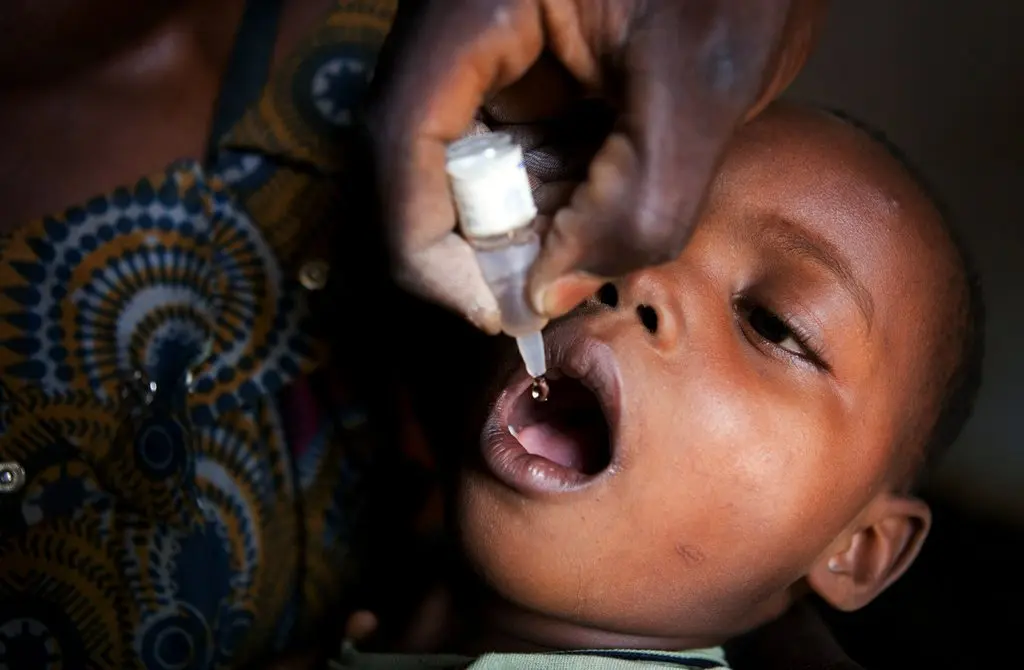The Democratic Republic of the Congo has entered the second phase of a large-scale polio vaccination campaign, aiming to immunize over 10 million children in a renewed effort to curb the spread of the virus.
This expanded campaign comes in response to 25 confirmed cases of circulating variant poliovirus (types 1 and 2) reported in 2024. Despite ongoing control measures, type 2 poliovirus continues to circulate in several provinces, prompting health authorities to escalate their response.
According to the World Health Organization (WHO), the virus remains a serious threat to unprotected communities. “To halt the transmission and shield vulnerable populations, it is critical to strengthen immunity through a combination of routine immunization and targeted mass vaccination,” the agency stated in a recent release.
The latest phase, running from June 26 to 28, focuses on high-risk areas. Children from birth to five years old are being vaccinated in Kinshasa, Tanganyika, Haut-Lomami, Kongo Central, and Haut-Katanga. In Tshopo and Maniema, the age bracket has been widened to include children up to 15 years, in an effort to bolster community-level immunity.
A total of 13 million vaccine doses are being deployed, supported by a workforce of 60,000 vaccination teams. These teams are carrying out house-to-house visits, setting up vaccination points in public spaces, and working closely with local health centers to maximize coverage.
Elisabeth Mukamba, who leads the Polio Emergency Operations Committee in DR Congo, warned that under-immunization leaves children especially exposed. “In areas where vaccination rates are low, the virus finds a foothold. It spreads silently, and the consequences can be severe — including paralysis,” she said. “When one child is protected, it also reduces the risk for others. That’s why every dose counts.”
While Mukamba expressed cautious optimism about the country’s ability to control the outbreak, she emphasized the need for sustained efforts and community cooperation. Authorities are urging parents and caregivers to ensure their children are vaccinated and are calling on community leaders, civil society, and local organizations to support the campaign.
The push for widespread immunization in DR Congo aligns with global polio eradication efforts. Since the launch of the Global Polio Eradication Initiative (GPEI) in 1988, global polio cases have fallen by over 99.9%. However, the virus has not been eliminated entirely. Wild poliovirus type 1 continues to be transmitted in Afghanistan and Pakistan, while outbreaks of vaccine-derived poliovirus persist, particularly in regions with gaps in routine immunization.
In 2024 and early 2025, countries including Nigeria, Angola, Ethiopia, Niger, South Sudan, Yemen, Chad, and Algeria reported increased cases of vaccine-derived poliovirus compared to previous years, according to the WHO.
Polio is a highly contagious viral disease, primarily affecting children under five. The virus is spread through contact with infected fecal matter or saliva, and in some cases, it can lead to lifelong paralysis or death. Vaccination remains the most effective tool to prevent transmission and eliminate the disease altogether.
As the DR Congo scales up its vaccination campaign, health officials are hoping to close immunity gaps and bring the country one step closer to a polio-free future.



